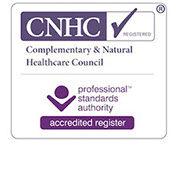Blog
Why digestion starts with our senses
The way we buy, prepare and consume food has changed dramatically over the last 50 years. From the proliferation of convenience and takeaway foods to ‘eating on the go’, how we eat is a direct reflection of the society we live in.
Unfortunately for our poor digestive systems, these changes are not good news.
Most of us think that digestion starts in the mouth, when we chew our food. And so, it may surprise you to learn that digestion actually starts much before that. We need only look back to the way we used to eat to understand why this is the case.
How it used to be…
Before supermarkets and our 24/7 culture, we would visit the local shops and find foods that inspired ideas about what we might like to cook. We would browse, touch the food, ask questions and be able to get a sense of its freshness.
Shopping for food would take place in a few locations, and as we browsed and walked between shops, we would have time to think about what we might prepare with the ingredients we were buying. Shopping might also be a social occasion: with conversations taking place with members of the local community, or the shopkeepers themselves. We may share ideas about what we were cooking that night or get ideas from others.
All the time this is happening, we would be preparing our digestive system for the food it would receive later in the day.
Next we would take the food home and begin to prepare our evening meal. We would chop the ingredients, taking in the colours and the aromas with our senses.
And all the while we would be telling our digestive system that a meal was coming.
When the meal was ready, we would sit down at the table with the family and talk about our day. We would literally and metaphorically digest the day, and the food, together. We would take time to chew what was in our mouths: something that is so crucial to get the digestive enzymes working, given that the stomach doesn’t have a set of its own teeth!
Eating would be quite a long affair – maybe up to an hour – and on many levels this would ‘feed’ us.
As the evening progressed, we could rest and digest together.
Compare this to now…
For many of us in our current society, that first part of digestion described above is entirely lost. Instead, we may rush into a petrol station to grab a sandwich or a microwave meal from the supermarket.
Life is a rush.
So, asking people to go back to ‘how things were’ is not viable. We are busier, and more stressed, with longer commutes between home and work. Most of us don’t have two hours at the end of the day to prepare a nutritious meal.
Rather than trying to recapture the past, we can be informed by it and take some of the strategy’s forwards that can work for us. And we are not looking at being perfect: there is still a lot we can do to improve things, even with just small changes.
For example, it doesn’t have to take two hours to prepare something rich in vitamins and nutrients. A great option is to invest in a slow cooker and then leave a meal cooking all day, while we are out at work. Then, when we come home, the house will be filled with the smell of cooking and this will trigger our digestive system into action.
What’s more, we can still choose to sit calmly and eat whatever food is in front of us, talking to the people around us rather than staring at screens.
One of the main issues is that we are trying to fuel our bodies for an ever-increasing pace of life, but we are choosing the wrong sort of fuel to do this with. Sugary, refined foods only serve to deplete us further. If and when we can, choosing locally grown organic food can really boost the amounts of the vital nutrients we need.
The goal is to support the body in its natural digestion process, and by doing so we will be rewarded with greater health, energy and vitality. And once we begin to feel like this, we naturally start to crave those foods that are good for us, rather than those that aren’t.
For further information about the topic of digestion please click here. Or if you would like to book a consultation then head on over to my contact page.







